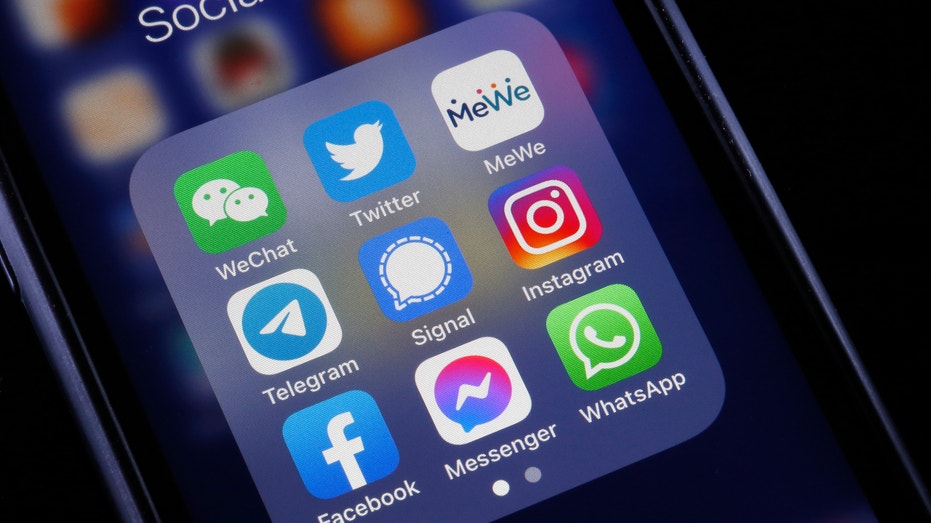
JLL Capital Markets Senior Director Jillian Mariutti-Nieder discusses shifts in commercial real estate stocks on ‘The Big Money Show.’
Being wealthy means different things to different people. The threshold of wealth is explored in the recent 2023 Modern Wealth Survey, an annual examination by Charles Schwab of how Americans think about saving, spending, investing and overall wealth.
| Ticker | Security | Last | Change | Change % |
|---|---|---|---|---|
| SCHW | THE CHARLES SCHWAB CORP. | 54.41 | -1.13 | -2.03% |
It takes $2.2 million to be considered wealthy
According to Charles Schwab, this year’s survey of 1,000 respondents revealed there is a paradox between how people define wealth for themselves and how they define it for others.
The data also demonstrated that the 48% of Americans who feel wealthy today have an average net worth of $560,000, compared to the $2.2 million they say it takes to be considered wealthy.
A FED PAUSE LIKELY WON’T HELP STRUGGLING CONSUMERS
The survey shows about two-thirds of Americans (62%) say being able to enjoy healthy relationships with loved ones better describes wealth than having a lot of money. And seven in 10 say wealth is more about not having to stress over money than having more of it.
Respondents were also asked to share what it means to be wealthy in their own words, and, according to the findings of the survey, Americans mention their well-being (40%) more often than money (32%) and assets (26%).
THE HOUSING RECESSION ISN’T OVER YET
“My interpretation is that we are looking at what money will do for us a little bit more in terms of lifestyle rather than dollar amount,” Rob Williams, managing director of financial planning at Charles Schwab told FOX Business. “Wealth today is more about healthy relationships with family/friends, good health and career flexibility than having more money.”
“Wealth today is more about healthy relationships with family/friends, good health and career flexibility than having more money.”
Age also seemed to play a role in wealth perceptions. Eight in 10 baby boomers revealed wealth is more about enjoying experiences (79%) and not having financial stress (83%) than having nice things or accumulating more dollars, the survey findings said.
“We’re seeing these trends at Schwab as well,” Jonathan Craig, managing director and head of investor services at Charles Schwab said in a press release.
GET FOX BUSINESS ON THE GO BY CLICKING HERE
“When people think about managing their finances and building wealth, it’s so much more personal than just money and investments. How they invest and what they invest in reflects their unique goals and passions.”
Craig said respondents value experiences and relationships in their lives.
“Americans today aren’t as worried about keeping up with the Joneses, and, more importantly, they understand that they can be happier with fulfilling experiences and relationships, even if they have less money than them,” Craig continued.
The online survey was conducted by Logica Research from March 1 to March 13 among a national sample of 1,000 Americans between the ages of 21 to 75. An additional 200 Generation Z Americans completed the study.

Phone apps (Chesnot/Getty Images / Getty Images)
Respondents reveal more financial planning could be needed
The Schwab survey also noted that just about one-third (35%) of Americans have plotted their goals and documented a financial plan. And, of those who do, seven in 10 say it makes them feel more in control of their finances. Nine in 10 say they feel confident they will reach their financial goals.
Does social media intersect with wealth perceptions and attitudes?
According to Schwab’s survey, social media can create doubts for Americans on how wealthy they feel and can impact the tendency to compare themselves to their social circles. Almost half (47%) say being able to afford a lifestyle comparable to their friends makes them feel wealthy.
And among those who use social media, more than one-third (37%) say they compare their lifestyles to what family and friends share on social media, Schwab shared in a press release. Also, 34% say they make certain purchases based on what they see on social media from friends and influencers.

View of a beach (Dimitrios Kambouris/Getty Images for Sandals Royal Bahamian / Getty Images)
They also reveal financial decisions (33%) and investment decisions (33%) are impacted by social media.
“The accessibility of social media and being able to instantly scroll and see fancy new items or exotic trips may influence how individuals feel about their own wealth,” Williams tells FOX Business.
“If they feel as though what their family and friends are buying or doing are within their financial reach, they are more likely to identify as feeling wealthy.”
Williams also says social media has become a platform Americans are increasingly using for financial, investing and savings advice, “which shows that many Americans are keeping their financial goals top of mind.”

 Latest Breaking News Online News Portal
Latest Breaking News Online News Portal




